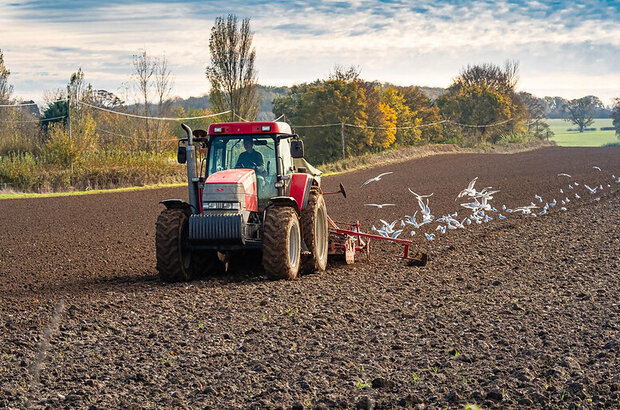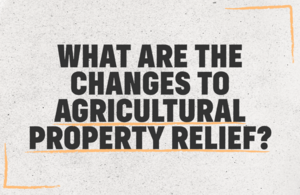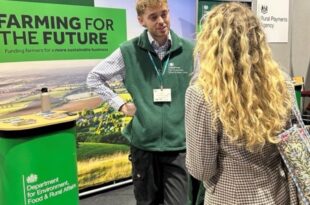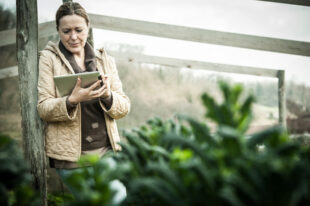
Farming and food security are the foundations of our economy, our communities and our environment.
The government has made it clear that its priorities are food security, sustainable farming, and environmental restoration. Their goals include cleaner water, reducing waste, protecting biodiversity, and improving climate resilience to support a productive and healthy natural environment.
Yesterday, spending on farming in future financial years was confirmed as part of the government’s Spending Review.
The Spending Review and the Budget work together to set out government spending. The Spending Review allocates funding to departments over several years, focusing on long-term priorities.
The Budget, announced annually, provides the economic outlook and sets out tax and spending plans for the coming year, based on the Spending Review’s framework. Together, they ensure spending aligns with the government’s goals and supports economic stability.
As outlined in the Chancellor’s announcement, we have secured a budget of £2.4 billion for the next financial year.
This means we can maintain the momentum of our environmental land management (ELM) schemes, which will rise to the highest funding levels ever by 2025/26.
Through this investment, we’re helping to secure a healthy and resilient future for English farming and restore our natural landscapes for generations to come.
In this post, we’ll give a roundup of yesterday's announcement and a top-line view of what it means for our schemes. In the coming months, we’ll go into more detail.
Environmental land management schemes
As mentioned, support for our environmental land management schemes (The Sustainable Farming Incentive, Countryside Stewardship Higher Tier and Landscape Recovery) continues.
We’ll continue to develop them so that they work well for farmers and nature.
The Sustainable Farming Incentive
The Sustainable Farming Incentive (SFI) pays farmers and land managers to manage land sustainably for the benefit of the environment and food production. The scheme is open, and all eligible farmers can apply.
Through the SFI, farmers can access the support needed to make their businesses more sustainable and resilient, contributing to food security and environmental health.
Find out how SFI can work for you.
Update: as of 12 November 2024, you can now apply for the expanded SFI offer without needing to complete the expression of interest survey.
Countryside Stewardship
Countryside Stewardship Higher Tier is designed to support farmers and land managers in England who are committed to advanced environmental practices on their land.
The scheme provides funding for complex, long-term projects that protect and enhance natural habitats, improve water quality, and foster biodiversity, benefiting both the environment and agricultural productivity.
It's especially valuable because it supports initiatives tailored to unique local landscapes and specific environmental needs, such as managing woodlands, conserving rare species, or restoring historical features.
This targeted, place-based approach encourages sustainable farming, promotes resilience against climate change, and enhances the beauty and diversity of the countryside, making it a win for both the environment and rural communities.
We’re pleased to say that when Countryside Stewardship Higher Tier opens, it will have a rolling application window with a streamlined application process to increase accessibility. More information about the timing and content of the expanded Higher Tier scheme will be published in December.
Farmers with expiring HLS or Higher Tier agri-environment agreements this year will be offered an extension to their existing agreement to give them time to move into new agreements in an orderly way. Next year, we will make it much easier for farmers in legacy HLS agreements and those farming on commons to transfer into new schemes smoothly, as and when they wish.
Landscape Recovery
Landscape Recovery offers farmers important opportunities to enhance biodiversity, protect landscapes, and address environmental challenges. Rounds 1 and 2 will continue and we will share more about future rounds of Landscape Recovery in due course.
Flood recovery
Recognising the impact of recent severe weather, the government will honour the £60 million Farming Recovery Fund to support those affected by Storm Henk and other severe weather last winter. The Rural Payments Agency (RPA) will contact eligible farmers directly.
In addition, our Flood Resilience Taskforce is working on long-term solutions to manage flood risks as part of our commitment to improve flood risk management.
This week, we’ll publish a post which goes into more detail about the approach to allocating funding, so do subscribe to the Farming blog for an alert as soon as it's live.
Delinked payments
Further reductions are being made to delinked payments for next year. This is to ensure that funding is targeted where it can have the greatest impact.
The fastest subsidy reductions will apply to those who historically received the largest payments. For example, the top 4% of recipients — who received over £100,000 in subsidies in 2020 — will receive no more than £8,000 by 2025. In contrast, most farmers, who began with less than £10,000 in payments, will see a gradual reduction in their delinked payments but will continue to have access to funding through SFI and other schemes.
For 2025, we plan to apply a 76% reduction to the first £30,000 of a payment, while making no payments for any portion of a payment above £30,000.
For example, a payment of £40,000 would have a 76% reduction applied to the first £30,000 of the payment (a reduction of £22,800). A 100% reduction would be applied to the next £10,000 (a reduction of £10,000). The payment would be reduced by £32,800 to £7,200.
It is the intention that this approach will enable more farmers to access funding for environmental land management, focusing on those who are dedicated to sustainability and environmental stewardship.
Farms with greater resources in particular are encouraged to pursue ways to improve productivity and diversify without expecting the same level of direct state support.
Grants
We will simplify and rationalise our grants offer to prioritise the initiatives that deliver the most critical support for food security and environmental goals in England. We will confirm the plans for our grant rounds in due course.
Animal Health and Welfare
The Animal Health and Welfare Pathway continues to actively invest in on-farm actions, to strengthen the partnership between farmers and their vets, reduce endemic diseases and conditions, increase animal productivity, and improve animal welfare.
Additionally, £208 million has been allocated for 2024-26 to upgrade the Weybridge biosecurity facilities. This investment will significantly improve our ability to respond to disease outbreaks, safeguard animal health, food security and the farming economy.
With these targeted efforts, the government is committed to supporting British farmers, helping them achieve greater resilience and sustainability, and ensuring that the benefits of farming are enjoyed by communities across the country.
Learn more
We’re working through the details of the budget announcement and what it means for farmers. Our commitment to the farming community remains firm, and we’ll continue to work closely with farmers to support a sustainable, healthy and resilient future.
When there is more detail, we will share it and where there are opportunities to shape our work with your insight, we’ll let you know.
Please subscribe to the blog for the latest from our team.






 The
The 
26 comments
Comment by Lizzie Hulton-Harrop posted on
Is the Test & Trials programme continuing?
Comment by The Team posted on
Hi Lizzie,
Thank you for your question. We are currently reviewing options and will share updates in due course.
Best wishes,
The Team
Comment by Stuart posted on
The biggest impact of the budget to most working farms is the change to inheritance tax yet in this budget update you chose not to mention this. Whilst the information provided is helpful, at a time where trust and confidence in defra and government is lower than it ever has been you do need to be honest and give the whole news however good bad or ugly and demonstrate your commitment to the farming community. Please could you add links to the detail of the new IHT in respect of agriculture.
Comment by Sarah Stewart posted on
Hi Stuart,
Thanks for getting in touch. The aim of this post was to focus what the budget means for the schemes we deliver in the Farming and Countryside Programme, rather than the broader tax reforms which are managed by HM Treasury - but I take your point. Details on the recent inheritance tax changes can be found here: https://www.gov.uk/government/publications/agricultural-property-relief-and-business-property-relief-reforms/summary-of-reforms-to-agricultural-property-relief-and-business-property-relief
Best wishes,
Sarah
Comment by Richard Watson posted on
Let's support the farming community indeed, but let's also expand the farming community, allowing new people with new ideas to enter the profession. At present it's very hard to own land unless you inherit it. An unintended consequence of the changes to IHT may be more land coming onto the market, which in turn will enable people to buy parcels of land for a variety of purposes, whether that's market gardening, organic vegetable-growing, woodland creation or conservation grazing. So while those lucky enough to own land already may be concerned, the other 98% of us might have reason to feel differently.
Comment by Richard Watson posted on
I am relieved to read that momentum in rolling out ELMS will continue despite the difficult budget settlement. In our intensively-managed landscape, nature-friendly farming is essential if we are to enable species to move and migrate from one wildlife oasis to another. Without ELMS we are merely trying to conserve what little is left of our native wildlife: with ELMS we can hope to see more abundant wildlife, and eat healthier food into the bargain.
Comment by Frank Broughton posted on
You give a figure of £2.4 billion as the spend on farming next year. Can you please confirm how much of this will be available for the ELM?
Comment by Sarah Stewart posted on
Hi Frank,
£1.8 billion.
Best wishes,
Sarah
Comment by ralph gascoigne posted on
Good afternoon,
'Expiring HLS or Higher Tier agri-environment agreements this year will be offered an extension to their existing agreement to give them time to move into new agreements in an orderly way'.
Does this include CS WD2 woodland only schemes?
Thank you.
Comment by beckybriggs posted on
Hi Ralph,
Thanks for your question. CS woodland agreements (including CS WD2 woodland only schemes) are not eligible for a mirror agreement. This is because many woodland agreements include actions that cannot be repeated on the same area of land and a new agreement may also need an updated or new woodland management plan, licence or consent.
However, you will be able to apply for a new CSHT agreement when this new expanded scheme opens next year. Subscribe to the blog to receive updates as soon as they are available: https://defrafarming.blog.gov.uk/subscribe/
Best wishes,
The Team
Comment by FRANK BROUGHTON posted on
Thanks,
Comment by Angie posted on
I want to support farmers have decided to buy my food from local farmers instead of supermarkets from now on
Comment by Alison posted on
Has the current FiPL funding scheme been axed/replaced?
Comment by The Team posted on
Hi Alison,
The Farming in Protected Landscapes (FiPL) programme was originally scheduled to end in 2024, but was extended by a year. That means you can apply until March 2025. Applications will close sooner if all funding is allocated.
Guidance here: https://www.gov.uk/guidance/funding-for-farmers-in-protected-landscapes
Blog post about the extension here: https://defrafarming.blog.gov.uk/2024/02/05/farming-in-protected-landscapes-our-progress-and-a-spotlight-on-the-3000th-project/
Best wishes,
The Team
Comment by Elizabeth Cox posted on
When will we know the application window for SIG Round 3 now the budget has been announced?
Comment by The Team posted on
Hello Elizabeth,
We will confirm future grant rounds in due course - when a grant is available, we'll blog about it.
Best wishes,
The Team
Comment by Lydia posted on
Will any of the budget be put towards extending the Future Farming Resilience Programme?
Comment by The Team posted on
Hello,
The Farming Resilience Programme is set to conclude in March 2025. We’ll share any updates if this changes.
Best wishes,
The Team
Comment by Matthew Kealey posted on
Good Morning, will there be a new FETF (Farming Equipment Technology Fund) scheme launched in 2025 ? Thanks
Comment by The Team posted on
Hi Matthew,
Thanks for getting in touch. We are currently working on simplifying and rationalising our grants offer to prioritise those that deliver the most critical support for food security and environmental goals in England. We will confirm the plans for our grant rounds as soon as we can on this blog, you can subscribe here to receive updates as soon as they are available: https://defrafarming.blog.gov.uk/subscribe/
Thanks,
The Team
Comment by Paul Andrews posted on
Hi, Will the farming innovation fund continue?
Comment by The Team posted on
Hi Paul,
Thanks for getting in touch. We are in the process of simplifying and rationalising our grant funding, ensuring that grants are targeted to where they can deliver the most benefit for food security and nature. We will confirm future grant rounds in due course. Subscribe to the blog for the latest updates here: https://defrafarming.blog.gov.uk/subscribe/
Best wishes,
The Team
Comment by Dani Edwards posted on
Hi, will there be a new round of Facilitation Funding to support farm cluster groups?
Thank you
Comment by The Team posted on
Hi Dani,
Thanks for getting in touch. The last round of Countryside Stewardship Facilitation Fund (CSFF) closed in January 2024 for agreements to start in June 2024. We expect to communicate further on CSFF early this year. Subscribe to the blog to receive the latest updates: https://defrafarming.blog.gov.uk/subscribe/
Best wishes,
The Team
Comment by Jade Allen posted on
Are there any updates on when a round three landscape recovery project will come live?
Comment by The Team posted on
Hi Jade,
As soon as there's an update, we'll publish it on the blog.
Best wishes,
The Team